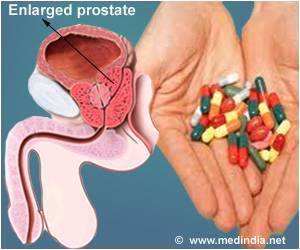Don't let Benign Prostatic Hyperplasia impact your life. Learn about the genetic risk factors associated with the condition and discover how targeted treatments could help.
- Genetic factors have been estimated to account for up to 78% of the variation in prostate size among men with benign prostatic hyperplasia (BPH)
- Variations in genes involved in hormonal pathways and cellular processes, such as SRD5A2, KLK3, and HSD17B4, have been linked to an increased risk of BPH
- Understanding these genetic risk factors may help identify individuals who are at higher risk for the condition and lead to the development of more targeted treatments
Understanding Benign Prostatic Hyperplasia
Before delving into genetic risk factors, it is important to understand the basics of BPH. The prostate gland is a small, walnut-shaped gland located below the bladder and in front of the rectum in men. It produces seminal fluid, which helps nourish and transport sperm. As men age, the prostate gland may grow larger and press against the urethra, causing urinary symptoms such as difficulty urinating, weak urine flow, and the need to urinate frequently. BPH is a complex condition influenced by multiple factors, including hormonal changes, inflammation, and genetics. While BPH is not usually life-threatening, it can affect the quality of life and increase the risk of other complications, such as urinary tract infections and bladder stones.Genetic Risk Factors for Benign Prostatic Hyperplasia
Several studies have shown that genetic factors play a significant role in the development of BPH. Genetic factors have been estimated to account for up to 78% of the variation in prostate size among men with BPH (1✔ ✔Trusted SourceCumulative association of five genetic variants with prostate cancer
Go to source). Researchers have identified several genes that are associated with an increased risk of BPH, including:
- SRD5A2: This gene encodes an enzyme that converts testosterone into dihydrotestosterone (DHT), a hormone that plays a key role in prostate growth. Variations in the SRD5A2 gene have been linked to an increased risk of BPH (2✔ ✔Trusted Source
Association of mis-sense substitution in SRD5A2 gene with prostate cancer in African-American and Hispanic men in Los Angeles, USA
Go to source). - KLK3: This gene encodes prostate-specific antigen (PSA), a protein that is used to screen for prostate cancer. Variations in the KLK3 gene have been linked to an increased risk of both BPH and prostate cancer.
- HSD17B4: This gene encodes an enzyme that plays a role in the metabolism of androgens, including testosterone. Variations in the HSD17B4 gene have been associated with an increased risk of BPH.
- Cumulative association of five genetic variants with prostate cancer - (https://pubmed.ncbi.nlm.nih.gov/18199855/)
- Association of mis-sense substitution in SRD5A2 gene with prostate cancer in African-American and Hispanic men in Los Angeles, USA - (https://pubmed.ncbi.nlm.nih.gov/7664265/)











